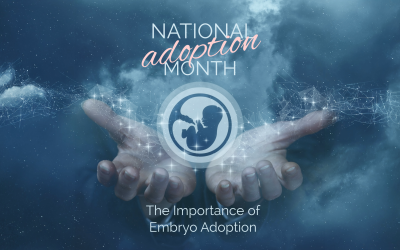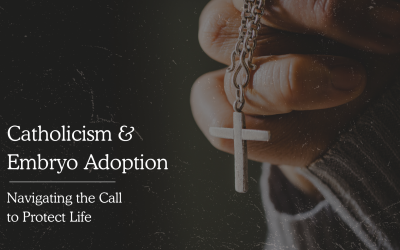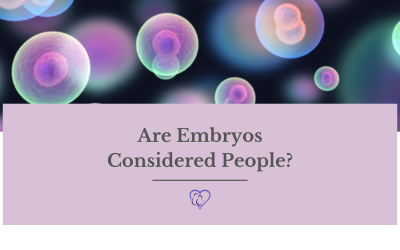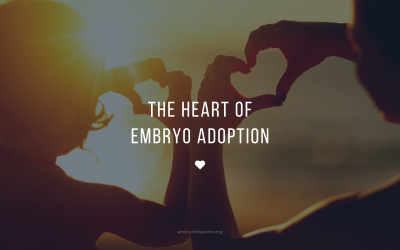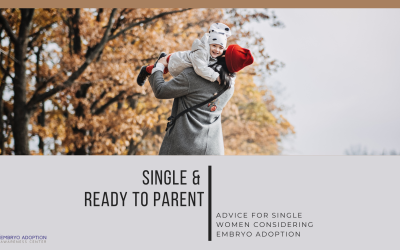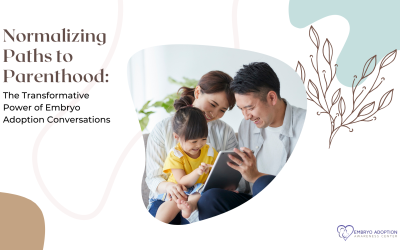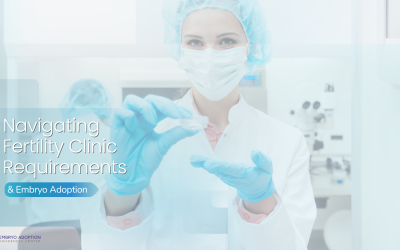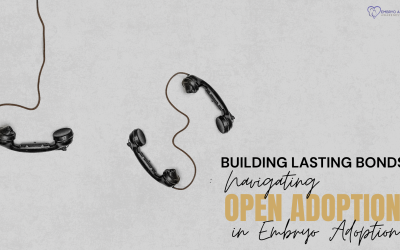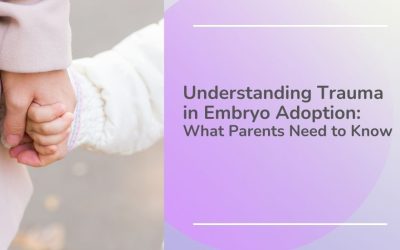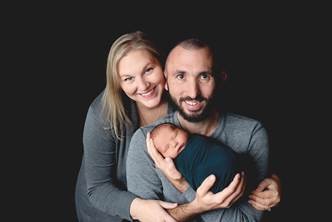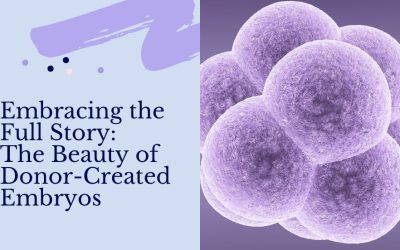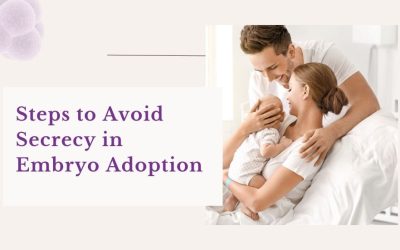Our Blog
Celebrating National Adoption Month: The Importance of Embryo Adoption
While many types of adoptions are typically highlighted during National Adoption Month, embryo adoption is a different type of adoption that may not receive as much attention.
Catholicism & Embryo Adoption: Navigating the Call to Protect Life
Among Catholics, few topics spark as much debate as embryo adoption. While the Church opposes IVF, the question of what to do with the more than 1.5 million frozen embryos, each a unique and precious human life, remains deeply complex. These embryos exist in frozen storage, suspended in time, awaiting a chance to grow and be born.
The Gift of Life Beyond Our Own Family
I wrestled with (our remaining embryos) for some time. It felt like unfinished business, like our family’s story wasn’t fully written yet. That’s when I learned about embryo adoption.
Are Embryos Considered People?
The question of whether embryos should be considered people is complex and deeply debated. Different perspectives approach the question in distinct ways, some emphasizing scientific and legal definitions, others focusing on moral or philosophical beliefs about when human life begins.
The Heart of Embryo Adoption
Adoption can take many forms, but at its core, it is the same selfless act of saying yes to a child who is not biologically your own, and loving them as though they were.
Single & Ready to Parent: Advice for Single Women Considering Embryo Adoption
Embryo adoption is a beautiful way to pursue motherhood, though it is not a path without its challenges. The key is to embrace the unknown, take time to reflect on what you truly want, make a thorough plan, and build a strong support system.
Our Journey through Infertility, Loss, and the Gift of Embryo Adoption
After walking through such profound loss, we began exploring new possibilities for growing our family. That search led us to embryo adoption, a family-building option we had not previously considered but one that quickly felt right for us.
Normalizing Paths to Parenthood: The Transformative Power of Embryo Adoption Conversations
Family does not always follow one path. For many, parenthood comes through hope, challenges, and unexpected opportunities. Embryo adoption is one of those opportunities.
Navigating Fertility Clinic Requirements & Embryo Adoption
Finding the right fertility clinic involves more than just a good feeling—it also requires understanding that not all fertility clinics are willing to work with adopted embryos, particularly those from outside organizations.
Building Lasting Bonds: Navigating Open Adoption in Embryo Adoption
Even though there can be an added element of pressure to start a great relationship for the sake of the children involved in an open embryo adoption, both parties are experiencing many emotions through this process.
Understanding Trauma in Embryo Adoption: What Parents Need to Know
A growing question among embryo adoptive families is this: Are children who were adopted as embryos at risk for adoption-related trauma?
Embryo Donation: From Heartache to Hope
Each embryo represents a possibility—a child whose story is still unwritten. This decision was not made lightly. To us, these embryos are not just medical outcomes—they are part of our legacy.
Embracing the Full Story: The Beauty of Donor-Created Embryos in Adoption
Understanding the full genetic and medical background of an embryo can be a meaningful part of the decision-making process for many adopting families. Here are some considerations to keep in mind when deciding whether to be open to adopting embryos created with donor gametes.
Steps to Avoid Secrecy in Embryo Adoption
While every family and child has a right to privacy regarding his or her adoption story, it is important to avoid secrecy. Here are some steps to help you avoid secrecy with your adopted child’s story.
Why Is There an Age Requirement for Embryo Adoption?
Why do programs and clinics place age limits on embryo adoption, especially when there is no legal maximum age to become a parent? The answer is rooted in a combination of medical realities, ethical responsibilities, and the goal of ensuring the best outcome for both parent and child.

